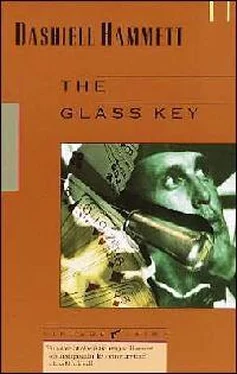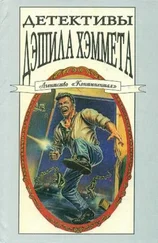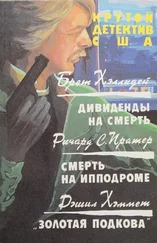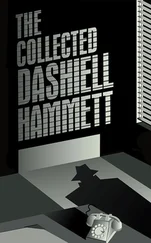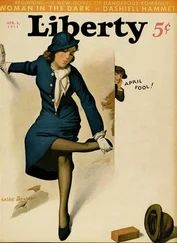Дэшил Хэммет - The Glass Key
Здесь есть возможность читать онлайн «Дэшил Хэммет - The Glass Key» весь текст электронной книги совершенно бесплатно (целиком полную версию без сокращений). В некоторых случаях можно слушать аудио, скачать через торрент в формате fb2 и присутствует краткое содержание. Год выпуска: 1931, Жанр: Крутой детектив, на английском языке. Описание произведения, (предисловие) а так же отзывы посетителей доступны на портале библиотеки ЛибКат.
- Название:The Glass Key
- Автор:
- Жанр:
- Год:1931
- ISBN:нет данных
- Рейтинг книги:5 / 5. Голосов: 1
-
Избранное:Добавить в избранное
- Отзывы:
-
Ваша оценка:
- 100
- 1
- 2
- 3
- 4
- 5
The Glass Key: краткое содержание, описание и аннотация
Предлагаем к чтению аннотацию, описание, краткое содержание или предисловие (зависит от того, что написал сам автор книги «The Glass Key»). Если вы не нашли необходимую информацию о книге — напишите в комментариях, мы постараемся отыскать её.
The Glass Key — читать онлайн бесплатно полную книгу (весь текст) целиком
Ниже представлен текст книги, разбитый по страницам. Система сохранения места последней прочитанной страницы, позволяет с удобством читать онлайн бесплатно книгу «The Glass Key», без необходимости каждый раз заново искать на чём Вы остановились. Поставьте закладку, и сможете в любой момент перейти на страницу, на которой закончили чтение.
Интервал:
Закладка:
He moistened his lips and said in a grave gentle voice: "What a spot he'd be in if you loved him as much as you hate him."
She stamped her foot and cried: "Don't say that! Don't ever say that again!"
Irritable lines appeared in his forehead and his lips tightened together.
She said, "Please," contritely, "but I can't bear that."
"Sorry," he said. "Had breakfast yet?"
"No. I was too anxious to bring my news to you."
"Fine. You'll eat with me. What do you like?" He went to the telephone.
After he had ordered breakfast he went into the bathroom to wash his teeth, face, and hands and brush his hair. When he returned to the living‑room she had removed her hat and coat and was standing by the fi replace smoking a cigarette. She started to say something, but stopped when the telephone‑bell rang.
He went to the telephone. "Hello.. Yes, Harry, I stopped in, but you were out. I wanted to ask you about — you know — the chap you saw with Paul that night. Did he have a hat?. He did? Sure?
And did he have a stick in his hand?. Oke. No, I couldn't do anything with Paul on that, Harry. Better see him yourself. Yes.
'By."
Janet Henry's eyes questioned him as he got up from the telephone.
He said: "That was one of a couple of fellows who claim they saw Paul talking to your brother in the street that night. He says he saw the hat, but not the stick. It was dark, though, and this pair were riding past in a car. I wouldn't bet they saw anything very clearly."
"Why are you so interested in the hat? Is it so important?"
He shrugged. "I don't know. I'm only an amateur detective, but it looks like a thing that might have some meaning, one way or another."
"Have you learned anything else since yesterday?"
"No. I spent part of the evening buying drinks for a girl Taylor used to play around with, but there wasn't anything there."
"Anyone I know?" she asked.
He shook his head, then looked sharply at her and said: "It wasn't Opal, if that's what you're getting at."
"Don't you think we might be able to — to get some information from her?"
"Opal? No. She thinks her father killed Taylor, but she thinks it was on her account. It wasn't anything she knew that sent her off — not any inside stuff — it was your letters and the Observer and things like that."
Janet Henry nodded, but seemed unconvinced.
Their breakfast arrived.
The telephone‑bell rang while they were eating. Ned Beaumont went to the telephone and said: "Hello Yes, Mom. What?" He listened, frowning, for several seconds, then said: "There isn't much you can do about it except let them and I don't think it'll do any harm. No, I don't know where he is. I don't think I will. Well, don't worry about it, Mom, it'll be all right. Sure, that's right. 'By." He returned to the table smiling. "Farr's got the same idea you had," he said as he sat down. "That was Paul's mother. A man from the District Attorney's office is there to question Opal." A bright gleam awakened in his eyes. "She can't help them any, but they're closing in on him."
"Why did she call you?" Janet Henry asked.
"Paul had gone out and she didn't know where to find him."
"Doesn't she know that you and Paul have quarreled?"
"Apparently not." He put down his fork. "Look here. Are you sure you want to go through with this thing?"
"I want to go through with it more than I ever wanted to do anything in my life," she told him.
Ned Beaumont laughed bitterly, said: "They're practically the same words Paul used telling me how much he wanted you."
She shuddered, her face hardened, and she looked coldly at him.
He said: "I don't know about you. I'm not sure of you. I had a dream I don't much like."
She smiled then. "Surely you don't believe in dreams?"
He did not smile. "I don't believe in anything, but I'm too much of a gambler not to be affected by a lot of things."
Her smile became less mocking. She asked: "What was this dream that makes you mistrust me?" She held up a finger, pretending seriousness. "And then I'll tell you one I had about you."
"I was fishing," he said, "and I caught an enormous fish — a rainbow trout, but enormous — and you said you wanted to look at it and you picked it up and threw it back in the water before I could stop you."
She laughed merrily. "What did you do?"
"That was the end of the dream."
"It was a lie," she said. "I won't throw your trout back. Now I'll tell you mine. I was—" Her eyes widened. "When was yours? The night you came to dinner?"
"No. Last night."
"Oh, that's too bad. It would be nicer in an impressive way if we'd done our dreaming on the same night and the same hour and the same minute. Mine was the night you were there. We were — this is in the dream — we were lost in a forest, you and I, tired and starving. We walked and walked till we came to a little house and we knocked on the door, but nobody answered. We tried the door. It was locked. Then we peeped through a window and inside we could see a great big table piled high with all imaginable kinds of food, but we couldn't get in through either of the windows because they had iron bars over them. So we went back to the door and knocked and knocked again and still nobody answered. Then we thought that sometimes people left their keys under door‑mats and we looked and there it was. But when we opened the door we saw hundreds and hundreds of snakes on the floor where we hadn't been able to see them through the window and they all came sliding and slithering towards us. We slammed the door shut and locked it and stood there frightened to death listening to them hissing and knocking their heads against the inside of the door. Then you said that perhaps if we opened the door and hid from the snakes they'd come out and go away, so we did. You helped me climb up on the roof — it was low in this part of the dream: I don't remember what it was like before — and you climbed up after me and leaned down and unlocked the door, and all the snakes came slithering out. We lay holding our breath on the roof until the last of the hundreds and hundreds of them had slithered out of sight into the forest. Then we jumped down and ran inside and locked the door and ate and ate and ate and I woke sitting up in bed clapping my hands and laughing."
"I think you made that up," Ned Beaumont said after a little pause.
"Why?"
"It starts out to be a nightmare and winds up something else and all the dreams I ever had about food ended before I got a chance to do any actual eating."
Janet Henry laughed. "I didn't make all of it up," she said, "but you needn't ask which part is true. You've accused me of lying and I'll tell you nothing now."
"Oh, all right." He picked up his fork again, but did not eat. He asked, with an air of just having the thought: "Does your father know anything? Do you think we could get anything out of him if we went to him with what we
"Yes," she said eagerly, "I do."
He scowled thoughtfully. "The only trouble is he might go up in the air and explode the works before we're ready. He's hot‑headed, isn't he?"
Her answer was given reluctantly: "Yes, but" — her face brightened, pleadingly—"I'm sure if we showed him why it's important to wait until we've— But we are ready now, aren't we?"
He shook his head. "Not yet."
She pouted.
"Maybe tomorrow," he said.
"Really?"
"That's not a promise," he cautioned her, "but I think we will be."
She put a hand across the table to take one of his hands. "But you will promise to let me know the very minute we're ready, no matter what time of day or night it is?"
"Sure, I'll promise you that." He looked obliquely at her. "You're not very anxious to be in at the death, are you?"
His tone brought a flush to her face, but she did not lower her eyes. "I know you think I'm a monster," she said. "Perhaps I am."
Читать дальшеИнтервал:
Закладка:
Похожие книги на «The Glass Key»
Представляем Вашему вниманию похожие книги на «The Glass Key» списком для выбора. Мы отобрали схожую по названию и смыслу литературу в надежде предоставить читателям больше вариантов отыскать новые, интересные, ещё непрочитанные произведения.
Обсуждение, отзывы о книге «The Glass Key» и просто собственные мнения читателей. Оставьте ваши комментарии, напишите, что Вы думаете о произведении, его смысле или главных героях. Укажите что конкретно понравилось, а что нет, и почему Вы так считаете.
